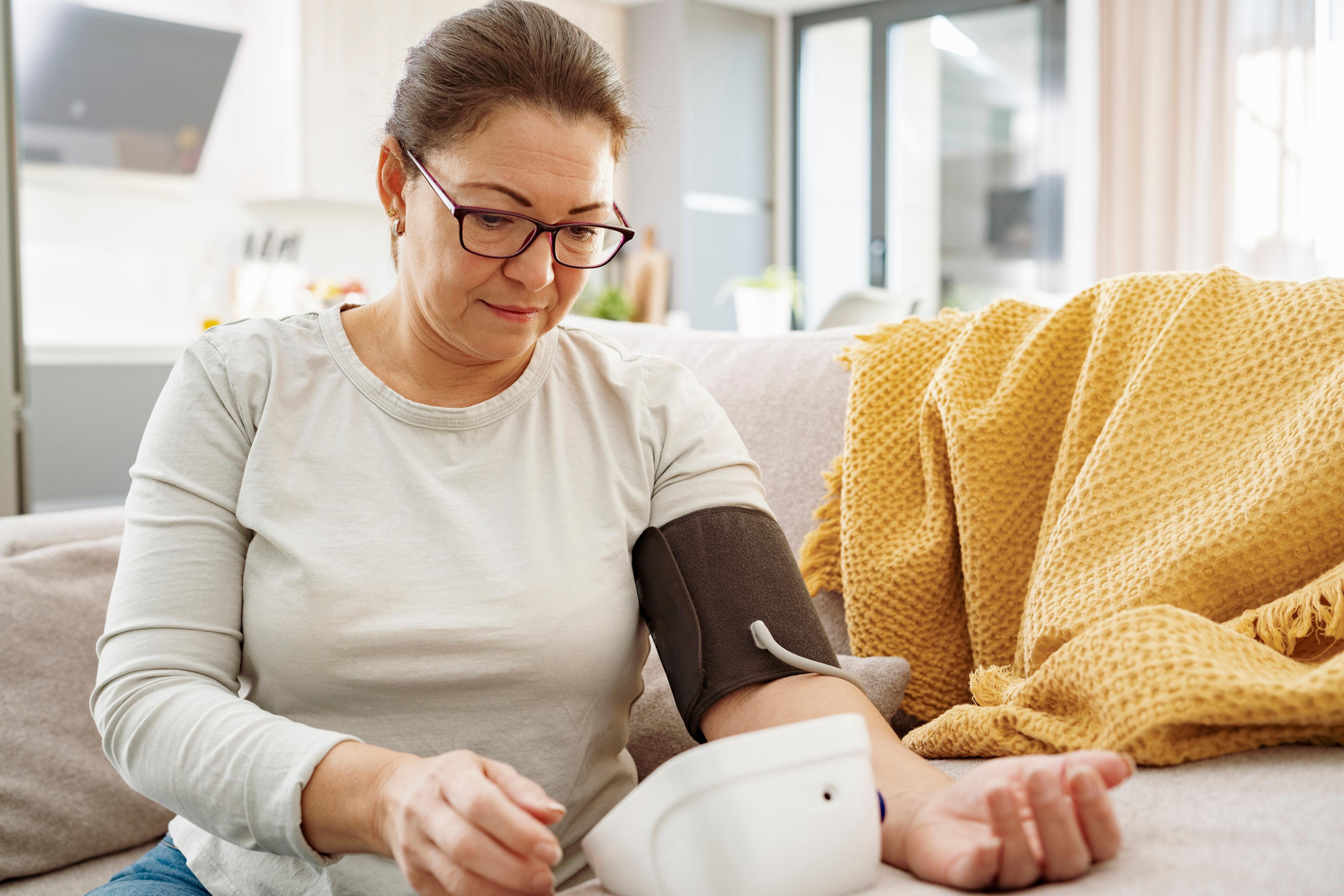What to Know About At-Home Colon Cancer Screening Tests
Shandra Martinez
| 3 min read

Early detection of colon cancer is critical: when colorectal cancer is found at an early stage, the five-year survival rate is about 90%. However, only four out of 10 colorectal cancers are found at this early stage, and colon cancer is currently the third-leading cause of cancer-related deaths among men and women in the United States.
This year, the American Cancer Society estimates there will be nearly 150,000 new cases of colorectal cancer diagnosed, and more than 50,000 people will die from it. Screening for this type of cancer becomes a much more routine part of health exams once people hit their mid-century mark. The Centers for Disease Control and Prevention recommends 45 as the baseline age for screening.
Depending on the test, screenings may occur every year or every few years.
As of July 1, 2021, Blue Cross Blue Shield of Michigan and Blue Care Network will cover colorectal screenings for most members beginning at age 45 to align with the recommendation of the U.S. Preventive Services Task Force. For more information, click here.
After age 75, the decision to undergo a screening test should be made in collaboration with a doctor, with consideration for health and prior screening history. Your health care provider is the best place to start when deciding what kind of colorectal cancer screening is right for you.
Colonoscopies are considered the gold standard for detecting and diagnosing colon cancer, as they can quickly detect polyps and other early signs.
Colonoscopies require you to prepare your body for the procedure by drinking a special liquid laxative to completely empty your bowels. During this outpatient procedure, a doctor will insert a thin, flexible tube with a small light and video camera into the colon to check for polyps or other potential early signs of cancer. This procedure allows doctor to screen the entire colon and is typically done every 10 years.
At-Home Screening Tests
Doctors may also suggest a stool screening test, which you can use at your convenience and in the comfort of your home. These at-home tests do not require the bowel-clearing preparation a colonoscopy does and work by detecting blood in the stool – but they may return false-positive results.
Depending on the test results, your doctor may ask you to come in for a more thorough colonoscopy if there are concerns. If an at-home test is positive, a follow-up colonoscopy is required. There are currently three standard types of at-home stool screening tests for colon cancer, according to the CDC.
- The guaiac-based fecal occult blood test (gFOBT). This type of test uses the chemical guaiac to detect blood in the stool. The at-home test kit includes a small stick or brush, which is used to obtain a small stool sample. The sample is then sealed into a provided package or container. It is either sent to a lab, or taken to a doctor’s office, where it is then checked for the presence of blood. This type of test is typically done once a year.
- The fecal immunochemical test (FIT). This at-home test uses antibodies to detect blood in the stool. Specifically, it can detect hemoglobin that is shed by polyps or colorectal cancer. Like the gFOBT test, the FIT test is done once a year.
- The FIT-DNA test. This is also called the “stool DNA test” because a person uses the kit to collect an entire bowel movement. This test can detect altered DNA in a stool sample. The sample is sent to a lab and checked for cancer cells. This type of test is typically done once every three years.
Blue Cross Blue Shield of Michigan and Blue Care Network cover colorectal screenings for most members beginning at age 45 to align with the recommendation of the U.S. Preventive Services Task Force. For more information, click here.





